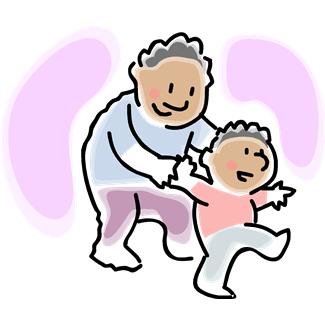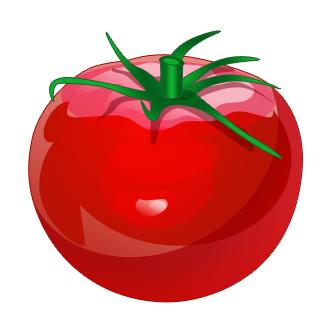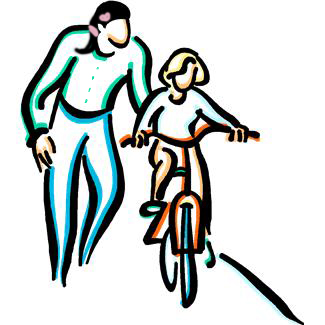Habits Masters; We Are
HABIT MASTERS; WE ARE (ISSUE 90)
By Diane Gold
Habit masters, we are. During our forming period, we don’t think about it, often. Once the habit is formed, we don’t think about it either. Unless it impedes our lives.
 Both habits and mastery require many lessons. They are both learned behaviors that require extreme repetition. Habits are responses we cultivate as a reaction to a certain feeling, urge, itch, trigger, craving. With repetition, these responses become semi-automatic behaviors that become part of our infrastructure until we change them. Mastery is a state of prowess developed through repeating any skill set.
Both habits and mastery require many lessons. They are both learned behaviors that require extreme repetition. Habits are responses we cultivate as a reaction to a certain feeling, urge, itch, trigger, craving. With repetition, these responses become semi-automatic behaviors that become part of our infrastructure until we change them. Mastery is a state of prowess developed through repeating any skill set.
Wouldn’t that make us habit masters?
COMMONALITY
So, here’s the habit infrastructure as we know it: urge leads to behavior leads to reward. We feel an urge. We do something about the urge. Our behavior gives us a reward. (Such as right now, sitting here, writing, in a doctor’s office near the health food¸ my trigger was writing the word “craving,” believe it, or not. My behavior will be to go get a frozen vegan pretzel product which is one of the only processed foods I allow myself, with lots of control so that I don’t do it every week.) My reward will be the realization of my own drooling for a pretzel (unless I decide to temper the urge by drinking two glasses of water, to quote my own advice).
 When we get the same urge over and over and do the same behavior to answer the urge, isn’t that actually mastering the management of that urge? In some cases, this “management” supports our positive life style. In others, the habit burdens us or diminishes our effective productivity.
When we get the same urge over and over and do the same behavior to answer the urge, isn’t that actually mastering the management of that urge? In some cases, this “management” supports our positive life style. In others, the habit burdens us or diminishes our effective productivity.
Obviously, when we hold a door for someone because we want the reward of being seen as or seeing ourselves as humanitarians, this is a great habit. When we get the urge to eat sweets, such as cookies or cake, and we answer that call by eating a whole bag of cookies or an entire cake; we may increase our weight, tax the body’s ability to healthily process glucose and develop the loss of urge control: a non-supporting habit.
When we drink alcohol on New Year’s Eve, that may be considered a harmless ritual, unless we learn to repeat that ritual over and over again several times daily.
When we eat snack foods that are made of fake food, we are cultivating a habit that is not good for our health. Unfortunately, often times, snacks are purchased because they fill us up on a severely restricted budget. Even more dismaying is that children will learn to eat poorly because their families cannot afford properly nutritious food. Or do their families not even know the ills of junk food because they, themselves, were raised on the same snacks?
WHY SNACKS
When we are young, many of us have been given snack foods for various reasons. Here are the more common reasons why:
1) Our families want us to stop demanding attention from them, so they bribe us into complacency by feeding us snacks, which often cause hyperactivity so we become more demanding.
2) Our parents, not knowing the pollution in snack foods, want us to be happy and want to show they love us, so they let us eat snacks the way their parents were raised. And, chances are, parents raised before the 1980s, did not begin in-depth food education in their early childhood education.

When I went to school, which was in the 50s and 60s, we made chocolate pudding or Kool-Aid in school as part of our cooking class. Sadly, nutrition was never part of the lesson, other than a tomato was red, it was spelled t-o-m-a-t-o and it was a fruit. (An Oxford Dictionaries review stated why the tomato is a fruit and I realized that the green pepper [or any color capsicum] “grows from the ovary in the base of the flower,” so just like tomatoes, are actually fruits, but used as vegetables in cooking.
NOTE
Starting with the Millenial Generation (Gen Y) – that is everyone born from the early 1980’s and afterward, will have access to more appropriate eating patterns than any generations before. There will also be more creative ways to eat well on less money because of global awareness due to global communications technology.
3) The most frequent reason people eat snack food is because healthier food is more expensive.
FACT
Just the other day, I spoke to a seventy-something who was the legal guardian to a child under seven. She received some $16 a month in food stamps, and the child received $29 for the month in food stamps. True, the woman was supposed to be receiving child support from each of the child’s parents, which was why the food assistance allotment was so low, but each parent was not able to contribute. There are companies that make little snack packs of processed food knowing the financial constraints exist more often than not. And they take that to the bank.
THE HABIT
 Whether we repeat our training, we learn, whether it’s riding a bike, learning to walk, learning to swim, answering our food urge mechanism by eating snack foods, answering our alcohol trigger by drinking to excess; we learn well how to immerse ourselves in the habit.
Whether we repeat our training, we learn, whether it’s riding a bike, learning to walk, learning to swim, answering our food urge mechanism by eating snack foods, answering our alcohol trigger by drinking to excess; we learn well how to immerse ourselves in the habit.
It is said by scientific reporting that we don’t forget our habits; they are always there. Bike riding and swimming are two great examples. We still have those skills even if we take a thirty year break. Or, let’s look at drug use. People who take a thirty year break from taking drugs will be the first ones to tell you the habit is there; they are just not exercising it for the day.
Habits don’t go away. We are habit masters.
ACTION STEPS
 The skills used to develop a habit are focus, repetition and follow through. These are the skills needed to change a habit, too. Of course, passion is involved in the original learning and should one choose to make a change.
The skills used to develop a habit are focus, repetition and follow through. These are the skills needed to change a habit, too. Of course, passion is involved in the original learning and should one choose to make a change.
Once we master one path to a habit, developing a new habit is not foreign to us; and it will be easier to develop a new one.
With that said, here’s the set of steps:
1) Identify a skill set you have.
2) Recall the amount of training you needed to learn it.
3) Identify a habit you have.
4) Recall all the times you repeated it to develop it.
So now that we have proved these major similarities,
5) Pick a habit that you want to change.
6) Focus on a new behavior to the old urge.
7) Repeat the new behavior the same time every day or several times a day.
8) Be consistent.
9) Write about it so that we can post it or not (your choice).
10) Notice what keeps getting in the way, if anything.
11) Write about it and contact us.
12) Keep working it until you are experienced at the habit change.
CONCLUSION
If we have followed these action steps, we will have a habit to put with all the others. We are, again, the habit master.
The trick, as I have found it, is to notice that, if we leave thinking out of it, we can accomplish mastery. We can tell ourselves that we will think later, since we are too busy acting.
Our mission is in front of us, shielded from distraction. Once again, we will become habit masters.
____________________________________________________________________
FEEDBACK
Please leave a comment and LIKE.
DIANE GOLD, AUTHOR
Diane Gold, Founder of Warriors of Weight, Turning Habits Into Health, is a mentor in tai chi, kung fu and meditation, a music, fitness and stress expert, dedicated mom, studying plant-based nutrition and habit change.
She has worked with many people as a teacher and has had the opportunity to see the way that they proceed towards a goal, whatever that is. She says,
“Although there are many people out there who say one group is different from another and one person is different from another, these statements have merit. We look different. Our personalities are different. The societies we choose may be different. The way we raise our families may be different. The pain we have suffered at the hands of some other group is different.
“What turns out to be the same is the way we work as human beings. our infrastructure. No matter what, when we feel an urge, we choose a way to behave even if that choice develops a habit without control. Makes me wonder how the prejudice habit actually began.
“The same is true for matters of the heart. We are similar within a realm. We all act with or without jealousy, we act with some brand of morality and we all cry when we are hurt. We all want to be loved, recognized, respected and important to some cause. We all pursue what is important to us.
“So I conclude that we are more the same than anything else. If aliens came to invade the planet, we would all work together to sustain humankind.
“Which is why I say we are habit masters, well trained in what we have repeated a lot. This doesn’t vary from person to person. The technique to change a habit varies slightly from person to person. But if we stop distracting thoughts and do the task at hand, we become the same as our sisters and brothers of other tribes and masters of our habits.”







